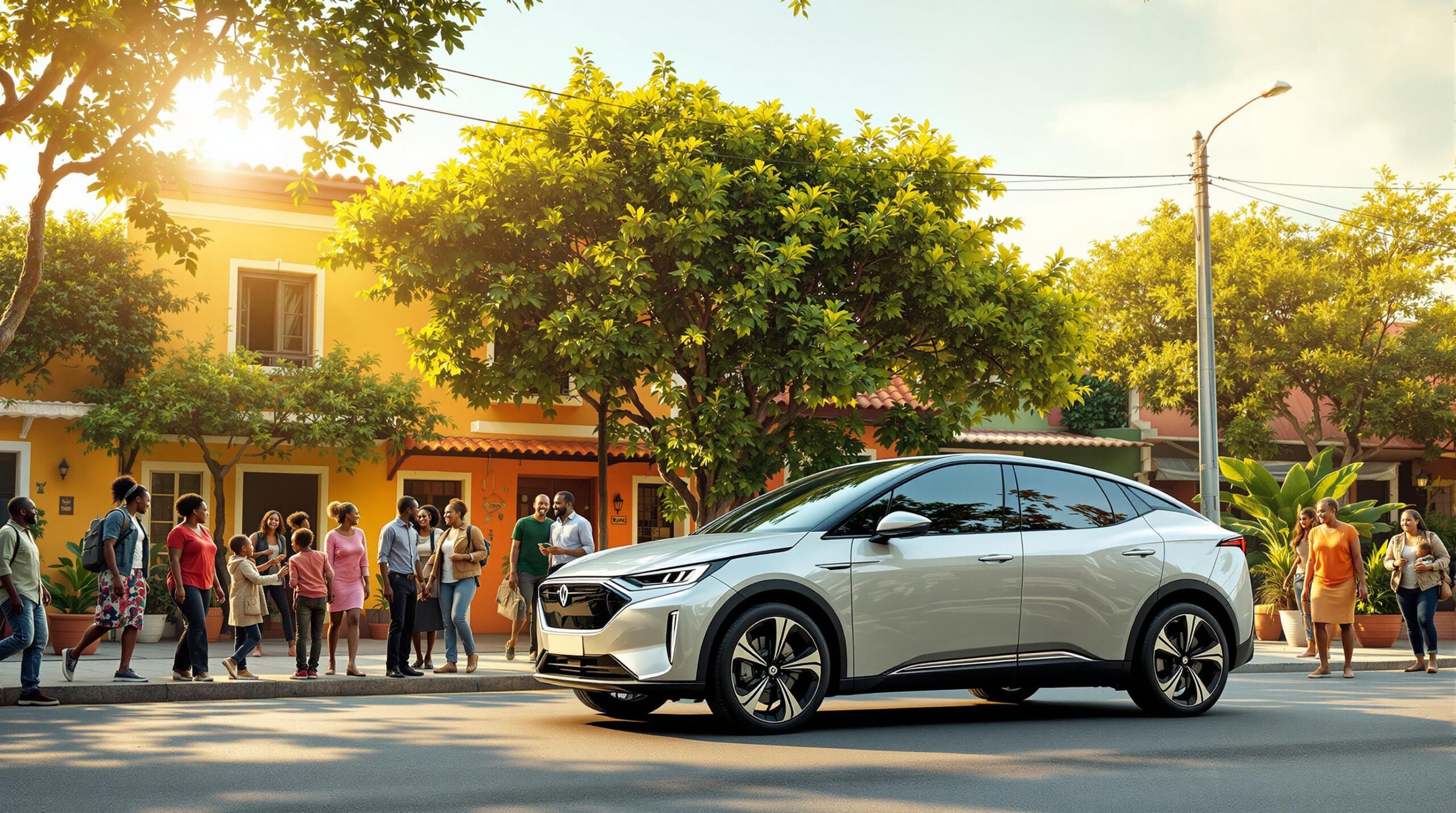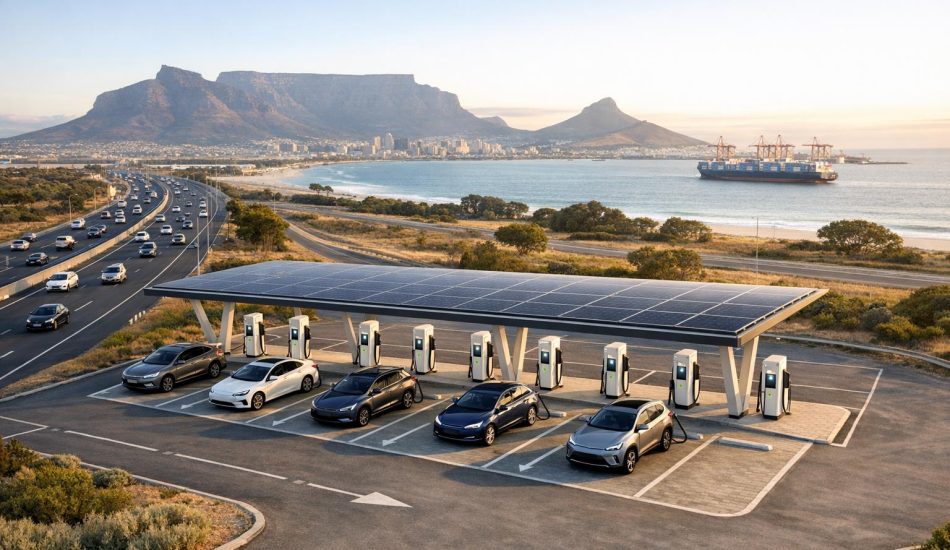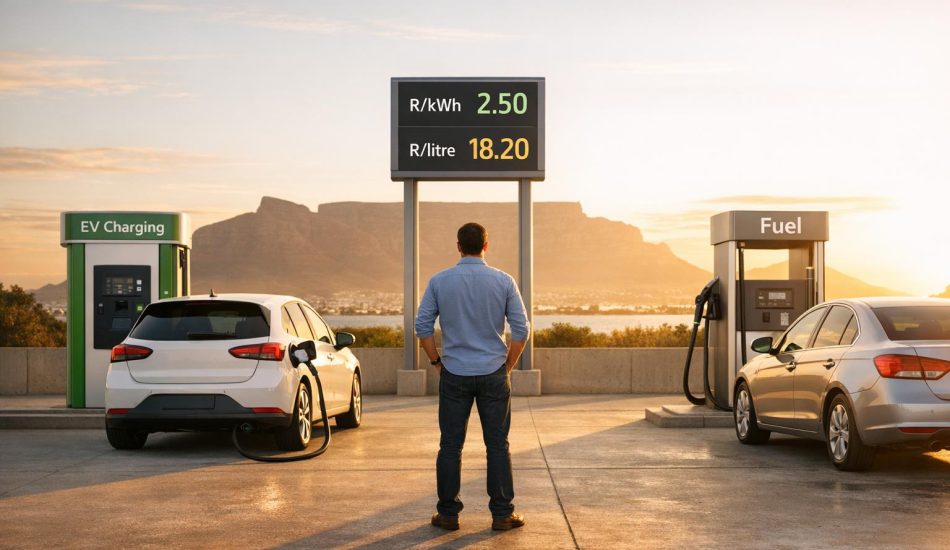
Electric vehicles (EVs) are helping Africa reduce carbon emissions and improve air quality, especially in crowded urban areas. Here’s why EVs are gaining attention:
- Zero Tailpipe Emissions: Unlike gas-powered cars, EVs produce no harmful exhaust pollutants.
- Cleaner Energy Potential: Charging EVs with renewable energy like solar can further reduce emissions.
- Health Benefits: EVs can lower air pollution, reducing respiratory illnesses caused by vehicle emissions.
- Cost Challenges: While EVs like the Geely Panda Mini Base start at $5,880, affordability and limited financing options remain barriers.
- Infrastructure Gaps: Many regions lack charging stations, and unreliable power grids add to "range anxiety."
Governments and private companies are addressing these issues with tax breaks, reduced import duties, and platforms like EV24.africa, which offer affordable models and help with registration. As EV adoption grows, Africa can expect cleaner air, lower emissions, and long-term cost savings.
Maxwell Chickumbotso: The African Inventor of the Self-Powered EV
Current Vehicle Emissions in Africa
Africa’s heavy reliance on gasoline and diesel-powered vehicles is a major contributor to carbon emissions, posing serious challenges for both public health and the environment. Understanding the sources of these emissions underscores the pressing need for cleaner transportation solutions. Here’s a closer look at how emissions are measured and their impact.
Measuring Vehicle Emissions
Gasoline and diesel vehicles, ranging from passenger cars to buses, release large amounts of CO2 and other greenhouse gases, particularly in crowded urban areas. These emissions highlight the importance of adopting electric vehicles (EVs) as a step toward cleaner transportation across the continent.
Health and Air Quality Effects
In cities, vehicle emissions significantly worsen air quality, making the air unsafe to breathe. Harmful compounds from exhaust fumes can:
- Cause respiratory problems as fine particles penetrate deep into the lungs.
- Contribute to smog, further reducing air quality in urban areas.
- Damage local ecosystems and harm agricultural output.
These health impacts come with a financial cost, as communities are forced to spend resources on addressing respiratory and related illnesses. This growing burden makes the shift to cleaner transportation not just an environmental necessity but also a public health priority.
How EVs Lower Carbon Emissions
Electric vehicles (EVs) help reduce carbon emissions in Africa by cutting out tailpipe pollutants and lowering overall emissions when charged with renewable energy. Here’s a closer look at how these two factors come into play.
Zero Tailpipe Emissions
Traditional gasoline and diesel vehicles release harmful pollutants that contribute to air pollution, especially in urban areas. EVs, on the other hand, produce no tailpipe emissions during operation. This makes them a cleaner option for cities where vehicle emissions are a major source of pollution.
Clean Energy and EVs
The environmental benefits of EVs go further when charged with renewable energy. By using sources like solar power – abundant in many parts of Africa – EVs can lower emissions from both transportation and energy production. This combination offers a powerful way to tackle pollution and carbon output across the region.
sbb-itb-99e19e3
EV Adoption Barriers in Africa
Although electric vehicles (EVs) offer clear benefits for cleaner transportation, Africa faces several obstacles that limit their widespread use. Tackling these challenges is crucial for expanding EV adoption across the continent.
Charging Station Access
One of the biggest hurdles is the lack of charging infrastructure. Many areas, especially rural ones, have limited or no access to charging stations. Even in urban centers, unreliable power grids and frequent outages make it difficult to maintain consistent charging services. This unpredictability increases "range anxiety", as drivers worry about running out of power without a nearby charging option. Beyond infrastructure, affordability also plays a role in limiting access to charging solutions.
Cost and Payment Options
The high upfront cost of EVs is another significant barrier for African consumers. Here’s a quick look at current market prices for some EV models:
| EV Model | Price (USD) |
|---|---|
| BYD Yuan Pro | $10,880 |
| Geely Panda Mini Base | $5,880 |
| Leapmotor T03 2024 | $9,500 |
| Dongfeng Fengon Windstar E380 | $23,300 |
While the Geely Panda Mini Base is priced at $5,880, it’s one of the few affordable options. Most EVs are still much more expensive than traditional gas-powered vehicles. On top of this, limited financing options make it harder for buyers to secure loans or payment plans, further discouraging potential EV purchases.
Steps to Increase EV Usage
Boosting the use of electric vehicles (EVs) in Africa calls for a mix of government initiatives and market-driven efforts to tackle existing challenges.
Government Support Programs
Governments are stepping up with measures to make EVs more accessible. Policies like reduced import duties, tax breaks, and waived fees are helping to lower the cost of EVs. At the same time, regulatory frameworks are being put in place to support infrastructure development and ensure charging networks are standardized.
Market Solutions and Services
On the market side, private companies are driving change. For instance, platforms like EV24.africa are simplifying EV adoption by offering:
- Transparent pricing, with entry-level models starting at about $5,880
- A variety of brands, including BYD, Leapmotor, and Geely
- Help with customs and registration processes
- Flexible payment options
Beyond just selling vehicles, private firms are also investing in charging stations and maintenance services. This approach not only makes EV ownership more convenient but also tackles concerns like range anxiety. Together, these efforts are making EVs a more affordable and practical choice, contributing to cleaner air and lower emissions.
Tracking Carbon Reduction from EVs
Emission Reduction Numbers
Electric vehicles (EVs) play a key role in cutting down emissions, especially in regions like Africa. To measure the carbon reduction impact of EVs, several factors come into play:
- How many EVs are replacing traditional gas-powered vehicles.
- The average distance these EVs travel daily.
- Fuel consumption rates of the vehicles being replaced.
- The carbon emissions associated with the local electricity grid.
These measurable factors not only impact the environment but also bring economic benefits by improving air quality and reducing reliance on fossil fuels.
Air Quality and Cost Benefits
Switching to EVs isn’t just about cutting emissions – it’s also about cleaner air and cost savings. Here’s a look at some EV options currently available in Africa:
| EV Model | Range | Price | Environmental Impact |
|---|---|---|---|
| GEELY PANDA MINI BASE | 120 km (75 miles) | $5,880 | No tailpipe emissions |
| BYD YUAN PRO | Not specified | $10,880 | No tailpipe emissions |
| LUXEED S7 | 705 km (438 miles) | $31,900 | No tailpipe emissions |
While EV prices range from $5,880 for entry-level models to as high as $85,000 for premium options [1], the savings on fuel and maintenance over time can help balance out the initial cost.
To evaluate the impact of EVs on air quality, cities can:
- Track particulate matter levels in areas with heavy traffic.
- Measure nitrogen oxide emissions.
- Assess ground-level ozone concentrations.
- Compare air quality data before and after EV adoption.
Conclusion
Electric vehicles (EVs) offer a promising way to cut carbon emissions across Africa while improving urban air quality. With zero tailpipe emissions, EVs can help tackle air pollution in Africa’s crowded cities – an issue that affects millions daily.
The shift to EVs is gaining traction, with a variety of models now available to fit different budgets and preferences, from affordable to high-end options. Platforms like EV24.africa make the transition easier by providing a range of models, transparent pricing, and delivery services across the continent.
As charging networks grow and EV technology evolves, the positive environmental impact becomes even greater. When paired with renewable energy sources, EVs provide an effective solution to lower carbon emissions and enhance air quality, contributing meaningfully to Africa’s efforts to address climate change.




